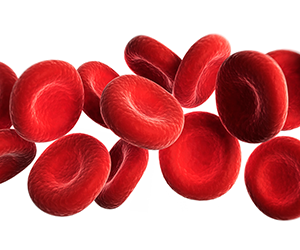Rebinyn May Interfere With Tests for COVID-19-related Coagulation Problems, Novo Nordisk Says

Novo Nordisk has issued a notice warning healthcare professionals that the hemophilia B treatment Rebinyn (nonacog beta pegol, or N9-GP) can interfere with some laboratory tests that measure blood coagulation.
Following reports that people with severe COVID-19 may develop a blood-clotting condition similar to disseminated intravascular coagulation, the company cautions that not all coagulation tests will be suitable to monitor this coronavirus complication in hemophilia patients on Rebinyn.
Genentech published a similar notice last month warning that the hemophilia A treatment Hemlibra (emicizumab) can also interfere with these tests.
Rebinyn, marketed as Refixia in the European Union, is a replacement therapy approved for on-demand control of bleeds in adults and children with hemophilia B. It provides a modified form of the factor IX clotting protein, which is missing or defective in these patients.
However, due to its mechanism of action, Rebinyn may interfere with some laboratory tests measuring blood coagulation, causing doctors to overestimate the therapy’s coagulation potential in certain circumstances.
These tests are used for monitoring hemophilia but also help diagnose and monitor other diseases that affect coagulation. One such example is disseminated intravascular coagulation, which sometimes develops in severe coronavirus infections, independently of hemophilia.
As such, if a patient is taking Rebinyn and becomes infected with the new coronavirus, these tests may not accurately detect COVID-19-associated coagulation problems.
In particular, the company says that coagulation problems associated with COVID-19 result in a rise in fibrinogen — which is converted into fibrin during coagulation — and in d-dimer (fibrin’s degradation product).
Patients are routinely treated with heparin, a medication used as an anticoagulant, and should be monitored for their levels of platelets, d-dimer, and fibrinogen, as well as for the overall speed at which blood clots, using the activated partial thromboplastin time (aPTT) and prothrombin time (PT) tests.
Rebinyn is “known to interact with the reagents used for the aPTT test causing either erroneous shortening or prolongation of clotting time,” depending on the reagents used, the company wrote in the statement.
The statement also includes a table with the assays most commonly used to manage people with COVID-19-associated coagulation diseases, with information about whether they are affected by Rebinyn and recommended alternatives.
“If a haemophilia B patient on Rebinyn requires treatment for COVID-19, we recommend to proactively inform the treating healthcare provider about their factor IX treatment and provide them with the below table for increased awareness of its impact on coagulation assays,” the company’s statement reads.






